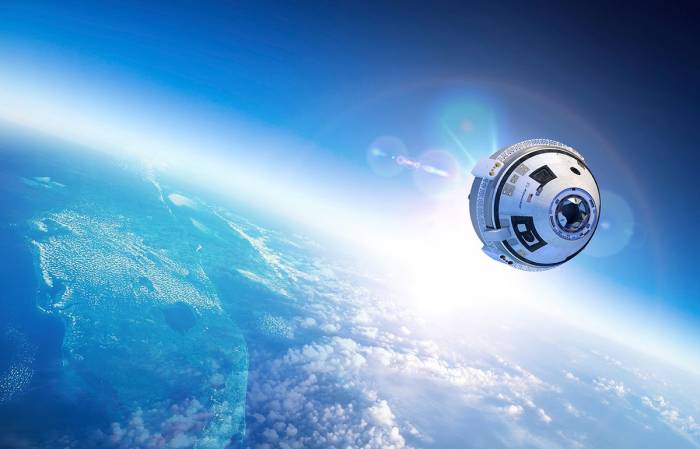The firm told The Washington Post that is has "been conducting a thorough investigation with assistance from our Nasa and industry partners. We are confident we found the cause and are moving forward with corrective action."
The leak is likely to delay its launch schedule and is another setback for a program that has faced a series of problems. It also comes as Vice President Mike Pence is expected to announce the crews for the first missions during a ceremony in early August at the Kennedy Space Centre in Florida.
Along with SpaceX, Boeing is under contract from Nasa to fly astronauts to the space station.
The so-called "Commercial Program" would restore Nasa's ability to fly humans from the United States - a capability that was lost when the Space Shuttle retired in 2011.
Since then, the space agency has had to rely on Russia to fly its astronauts to space, at a cost of more than $80m (£61m) per seat.
Under the program, Boeing's contract was worth as much as $4.2bn (£3.19bn); SpaceX's was $2.6bn (£1.9bn) for the same number of flights.
The program's first test launches with crews on board were supposed to happen this year. But a recent Government Accountability report said the company's schedules "are aggressive" and that they "have set ambitious - rather than realistic - dates, only to frequently delay them."
SpaceX, the rocket company founded by Elon Musk, has also faced challenges and is working to show Nasa that it has fixed a problem that caused one of its uncrewed Falcon 9 rockets to explode during fuelling in 2016.
In its report, the Government Accountability Office (GAO) said that further delays in the program could "disrupt access to" the space station - which would be an enormous embarrassment for Nasa.
The space agency has been counting on Boeing and SpaceX to fly astronauts there.
But the GAO said the delays could mean their spacecraft are not certified before the last flights Nasa has secured for its astronauts on Russian rockets, which would keep an American presence on the station at the start of 2020.
Should delays persist, Nasa could find itself with no way to get to the station, the orbiting laboratory that has cost Nasa $100bn to build and operate.
In a statement, Nasa said that, "flying safely has always taken precedence over schedule. As our partners are finalising their systems, we're assessing remaining technical details and schedules for flight tests with and without crew."
The agency said it plans to announce an update on the test flight schedules next month.
Boeing said that it discovered the propellant leak during the emergency abort test in June at the White Sands Test Facility in New Mexico.
"The engines successfully ignited and ran for the full duration," the company said in a statement. "During engine shutdown, an anomaly occurred that resulted in a propellant leak."
The GAO report also said it was concerned about another problem with the abort system, causing it to "tumble, which could pose a threat to the crew's safety."
Boeing has said it fixed that problem, and that it would "meet or exceed all Nasa requirements."
The Independent
More about: ISS
















































